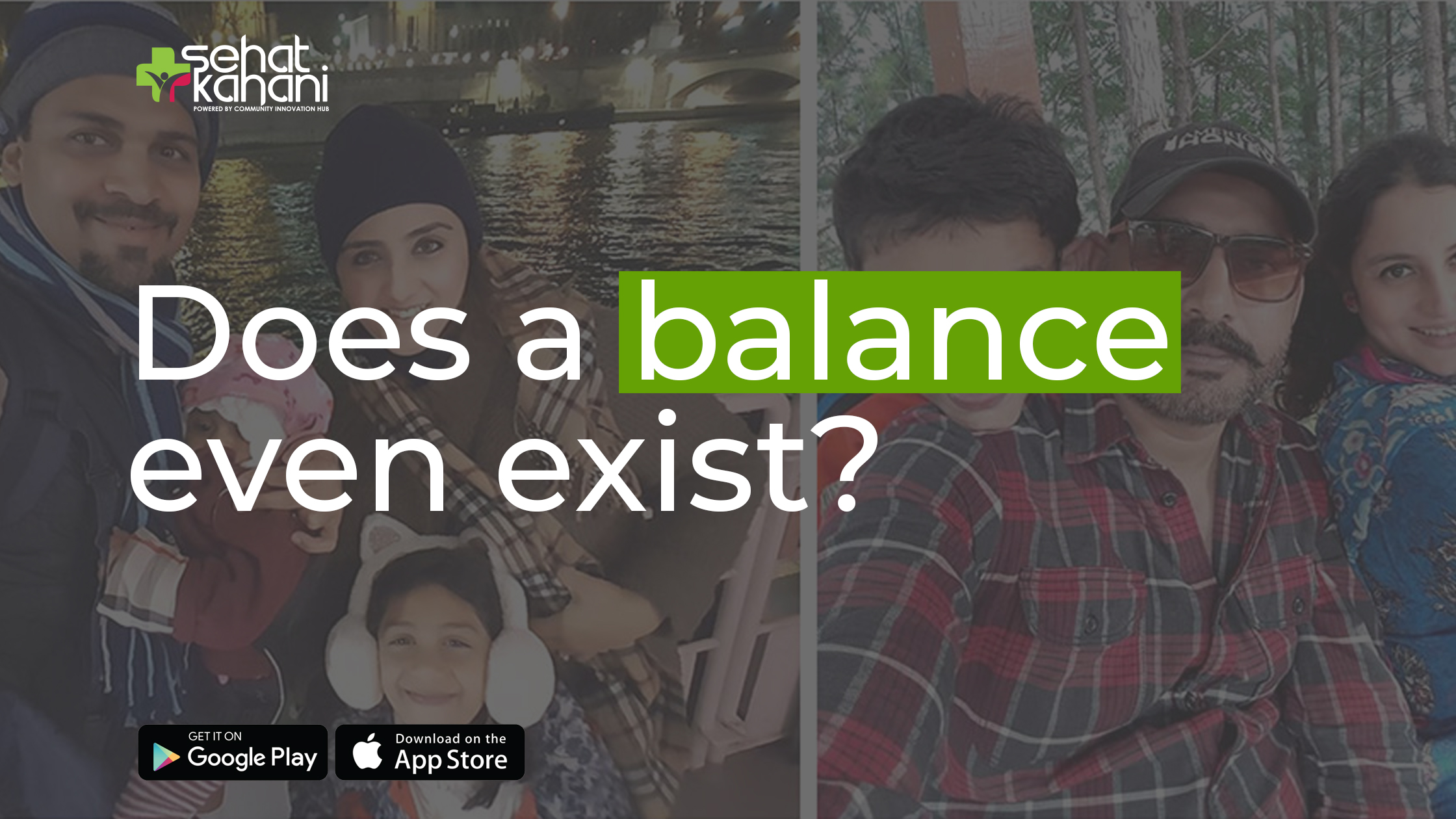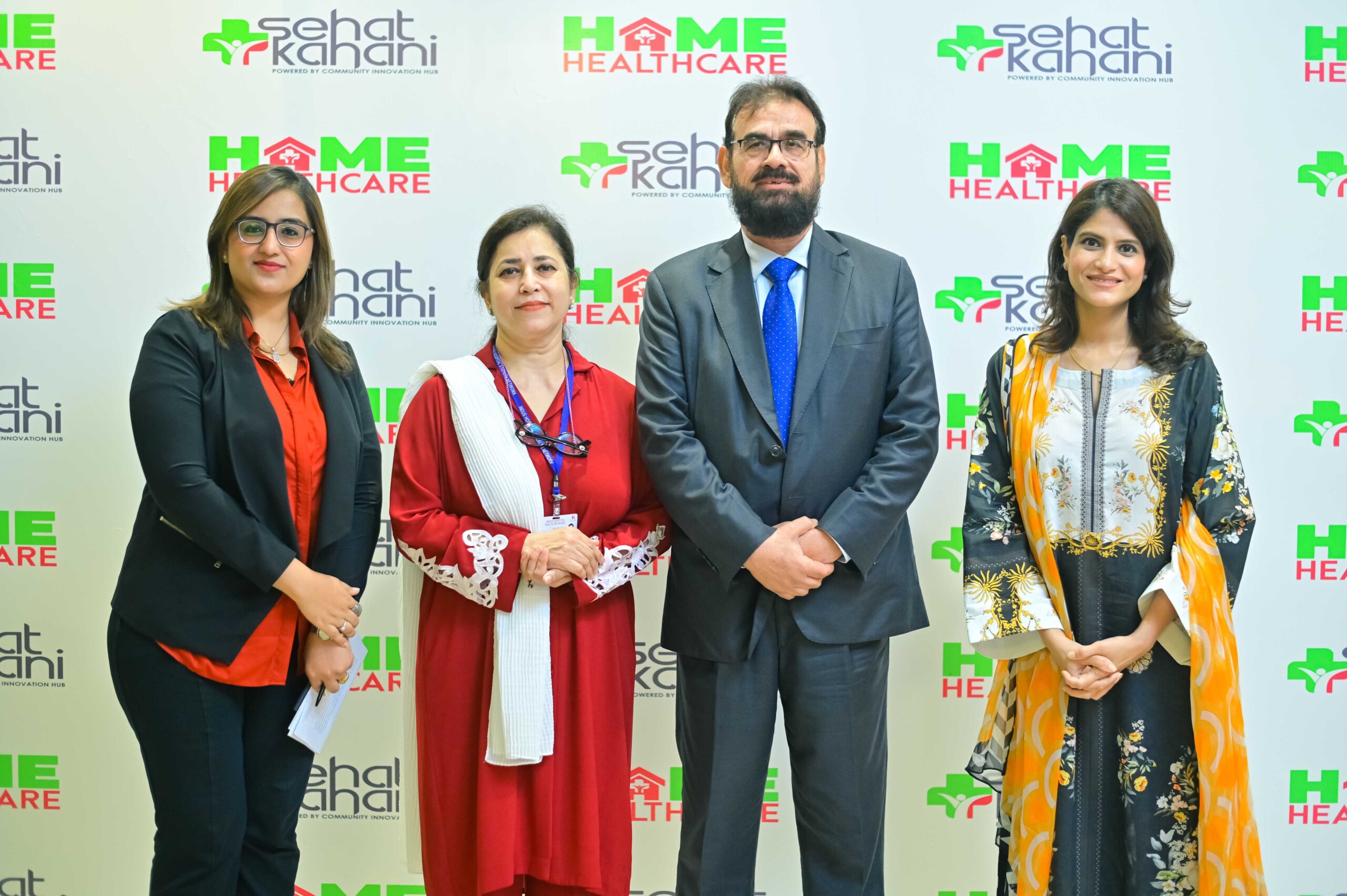
by Arfa Masihuddin
So I’m a young female medical student hoping to graduate next year. The future doesn’t seem bleak. It does, however, seem confusing. Clinical or academia? How does one find a sub-speciality that allows you to earn well as you enjoy what you do, and also leaves you with enough time to enjoy summer beach trips with the family and soulful winter evenings with a book, all as you proudly break down the barriers set by the patriarchy?
In an attempt to put to rest similar concerns shared by the female workforce, I had a little tete-a-tete with two female doctors gracefully doing it all.
Dr Iffat Zafar Aga, the co-founder and CEO of Sehat Kahani and a happy mum of two had a very practical approach to making the work-home balance stress free.
How do you manage to give time to your kids along with the work? Are there days when you miss a PTM or a school event? If yes, do you experience any guilt? How do you deal with it?
So it has been the most difficult journey as a working mom who is equally passionate about her kids and her work. I generally like to start work very early, heading to the office as soon as my daughter is off to school, and then getting home by 5 so that 5:30 to 9 PM is when I can spend time with her. Her bedtime is usually when I start working again since being an entrepreneur there is no end to it. I have missed and forgotten the parent-teacher meetings and felt bad about it, but then that is how you cope with it.
How do you ensure cooperation from your husband and family on the bad days?
I don’t have any family here except my husband who is generally a big support. As much as I may hate it, my biggest support is a very old trusted maid. She has been with us for years so I trust her. Thankfully, my husband has always been supportive. It’s all about being kind and understanding and helping each other out by cooperating. He often works for late hours and I also work from home and take care of his parents, so if I ever need help, he’s always there.
Any things in particular that you keep as a backup? For instance cooking on the weekends, keeping a planner so nothing is forgotten, a trustworthy house help?
Oh, yes! All of these. Saturday is my household chores day when I shop for the coming week’s grocery, plan the meals, etc. Like I mentioned before, an old trusted household help has been very supportive. I also think that as working mothers, we ought to start training our children from a young age. I have two daughters and the elder one knows that she is not allowed to go out with the driver, she’s not even allowed to speak to him, she knows that only her Mama or Baba and the Auntie (household help) can help her change clothes. Similarly, she knows that she has to talk to me about the day’s happening at home and school, that way we avoid a communication gap that has become a threat for most parent-child relationships.
Dr Sameeha Aleem, a clinical psychiatrist and also a cheery mum of two, astutely observed that it is the will to continue that matters, and it is the contentment on the faces of her patients that makes it all worth it.
What should a working woman’s – especially a doctor’s – support system look like? What sort of support do you look for from your husband and your family?
Choosing who to marry goes a long way in helping a female with her job. If both spouses understand the importance of sacrificing one’s time while the other is at a crucial stage of their career, then it works well.
A female doctor should ideally have a lot of emotional support from the husband, and appreciation and encouragement from her parents and in-laws. She shouldn’t be made to feel guilty for choosing to continue her profession as she loves and cares for her family. Small gestures from the husband like doing the dishes, taking turns in making dinner, matter and makes one not regret their choice of profession and spouse. It also allows the couple to spend quality time together without letting the gender stereotypes bitter the relationship.
In all of this, having the ability to build strong relationships is what helps the most. Friends are really, really, important, they are the light at the end of the tunnel. I try to meet my friends in between my clinics at least twice a month, saving in advance to plan these outings.
Taking out time for yourself is very important. How do you do that?
I stand up for my alone time and try to reduce impingements on it by others. Spending quality time with children is my ‘me-time’. Bedtime storytelling is more therapeutic for me than anything else! And post-bedtime is when I get to unwind by treating myself to a good book.
That brings us to the main issue. As Dr Iffat points out, “Most healthcare institutes, despite having a big infrastructure, lack daycare services for working mothers, hence excluding a large number of women who could have worked but in the absence of the family’s support, they are left with no option but to quit work. A very important part of the support system also requires making the men of our society attuned to the idea of working women, be it the husbands, the fathers-in-law, the fathers, or the brothers. This will go a long way in ensuring their much-needed cooperation.”
Dr Sameeha very wisely summed up how empathy, kindness, and respect should colour up our lives – “an ‘either this or that’ situation shouldn’t be created for her. An unhappy mother can never raise happy children.”



